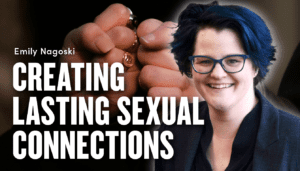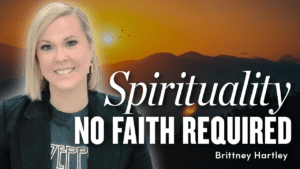Paul Cardall battled long odds from birth, eventually triumphing over a serious heart disability to earn distinction as an outstanding composer and pianist. In 1997 he first won widespread notice by setting author Richard Paul Evans’ No. 1 NY Times best-seller The Christmas Box to music. Cardall’s achievements range from releasing 11 chart-topping albums, winning the Gospel Music Association Dove Award for Instrumental Album of the Year, collaborating with Grammy-winning singer CeCe Winans, Audrey Assad, The Piano Guys among other distinguished artists.
With over 2 billion streams, Cardall is one of the most listened to Steinway & Sons sponsored artist in music business. His entrepreneurial activities include founding and directing the Stone Angel Music label and recording studio, promoting medical research and providing scholarships for congenital heart disease through his foundation. Cardall’s music has included works for piano, vocal, band and orchestral settings. On his latest album, Peaceful Piano, he returns to his solo performance roots while exploring complete real-time improvisation for the first time.
Paul’s Mormon story includes:
- Growing up in Salt Lake City, Utah, learning to “fit in” as a child and youth with a heart condition.
- Serving an LDS mission, and marrying in an LDS temple.
- Paul’s rise to celebrity as a piano performer – first in Salt Lake City, then joining the LDS Church speaking/inspiration circuit, and ultimately becoming a world-renowned musician, with hundreds of millions of Spotify downloads.
- Paul’s receipt of a human heart transplant, and his recovery.
- Paul’s struggles to maintain a healthy/happy marriage, ultimately leading to his disfellowshipment from the LDS Church and a shaming public divorce.
- Paul’s remarriage to a non-LDS woman, and his invitation to co-author a Mormon hymn with LDS Church apostle David A. Bednar called “One by One.”
- Paul’s loss of testimony in the LDS Church, and his discovery of a new faith in traditional, non-denominational Christianity.
Cardall’s story is continuing to evolve as an artist, author and humanitarian. His upcoming album The Broken Miracle, which will be available for pre-order this December, was inspired by J.D. Netto’s biographical fictional novel, based on real events in the artists life from being born with only half a heart, enduring a series of surgeries, which culminated in a heart transplant. While waiting for a donor heart, the pianist’s brother was tragically killed. The album will feature several award-winning guests including David Archuleta, Ty Herndon, Thompson Square, Neon Tress’ Tyler Glenn and more.
We hope you enjoy this episode! Paul is a fantastic human.




11 Responses
Paul talked about his family connection to Snelgrove’s Ice Cream, an anchor in the Sugarhouse District of Salt Lake City. That part of the City has significantly changed over the years yet the signature “Snelgrove” signage, a huge double ice cream cone beside the street, remains a benchmark along 2100 South Street.
Here’s a Tribune summary and photographs of Snelgrove’s building and signage.
https://archive.sltrib.com/article.php?id=2627183&itype=CMSID#gallery-carousel-446996
I really connected with your story Paul. I appreciate your insights and the way you interpret Christianity. From my studies of the new testament and near death experiences, what really is important is being kind to others, being loving to our family, friends, and all those we come into contact with. Everyone should be a little better off because of us. I also like what you said that if God is love then Christ is love as Christ is one with the Father (at-one-ment). Their goal is in my opinion for all us to be at one with the father and the way is love (Christ). I agree the bible is written in allegory and not to be taken literally but to take away principles to live a better life. Organized religion misses the meaning of Christ’s words and instead introduces corporate like structures and hierarchy, and rites and ordinances, and mediators to God which are all unnecessary and conflicts with what we know of Christ. Thanks again Paul for your story, your music, your perspective, and example. My condolences for the loss of your brother by the way.
Thanks for sharing your story Paul. Amazing ! II lived across the street from your parents when the twins were born. Your dad was my first scout master. He was great. I remember the twins walking down the hall at church in their matching snow suits, they looked like pink easter eggs waddling along. Your dad probably won’t remember me but tell him Hi from Danny Boyle on Sahara Drive and thanks so much for your story. Quite amazing
This was wonderful! Totally worth listening to. Thanks so much!
I served under Calving R Stephens in the San Bernardino Mission as well. So Paul and I served at or nearly at the same time. Stephens seemed to have so many answers, and I approached it so much as Paul described. I loved when he would “unlock the scriptures.” I remember taking it all so seriously.
I’ve listened to quite a few of your podcasts and have to say, this is among the best.
This was a marvelous podcast, only left me wondering what is difference between
“Disfellowshipment” and “Excommunication”. Can you clarify for me? Thanks kindly.
Someone who’s disfellowshiped is still a church member, but they can’t speak in church or teach lessons or hold callings, and men can’t perform priesthood functions, like giving blessings. If the person had a temple recommend, it’s suspended. (They also can’t take the sacrament, but I think that can also sometimes be part of a repentance process that stops short of disfellowshipment.) They can pay tithing though!
Someone who’s excommunicated is no longer a member at all. Their ordinances (like baptism or being sealed to their family) are considered null and void. They can’t do all the same things that a disfellowshipped person can’t do, plus an excommunicant would have to be rebaptized to get their ordinances reinstated. And they won’t even take your money—excommunicants can’t pay tithing.
(I’m pretty sure all of these things are true of someone who resigns/has their records removed from the church, too.)
Excommunication is much more serious than disfellowshipment, which is much more serious than going through a repentance process. (Repentance process=misdemeanor; Disfellowshipment=felony; Excommunication=spiritual death penalty.)
I don’t know if this is actually doctrine, but I think a lot of Mormons believe that excommunication, esp for “apostasy,” would make the person a “son of perdition,” which are the only people “cast into Outer Darkness and ground into native element,” which is basically Mormon hell. Everybody else goes to some degree of glory.
I think that covers the gist. Maybe someone else could jump in and add to that or correct me.
Excommunication does not make a person a son of perdition. What the hell? It gives the opportunity to repent and start clean.
Hey Jennifer! That is a pretty accurate summation of the differences between those three “buckets.” I would just add two things:
1) Membership councils, held under priesthood authority in response to the wrongdoing of a member, can implement restrictions necessary to help individuals along the repentance process. This is always the goal. The restrictions or requirements are generally not a one sized fits all type solution. Restrictions are individualized according to the General Handbook of Instructions as applied under the direction of the Spirit. This can result in a wide variety of restrictions or requirements up to and including withdrawal of membership (excommunication).
2) Whether or not a lot of members believe that withdrawal of membership makes someone a son of perdition, I cannot say; however, I can say that while a clear definition of what constitutes a son of perdition has not been revealed, the bar is much higher than simple withdrawal of membership, or removal of church membership. One has to sin against absolute knowledge and be in open rebellion against God to become a son of perdition.